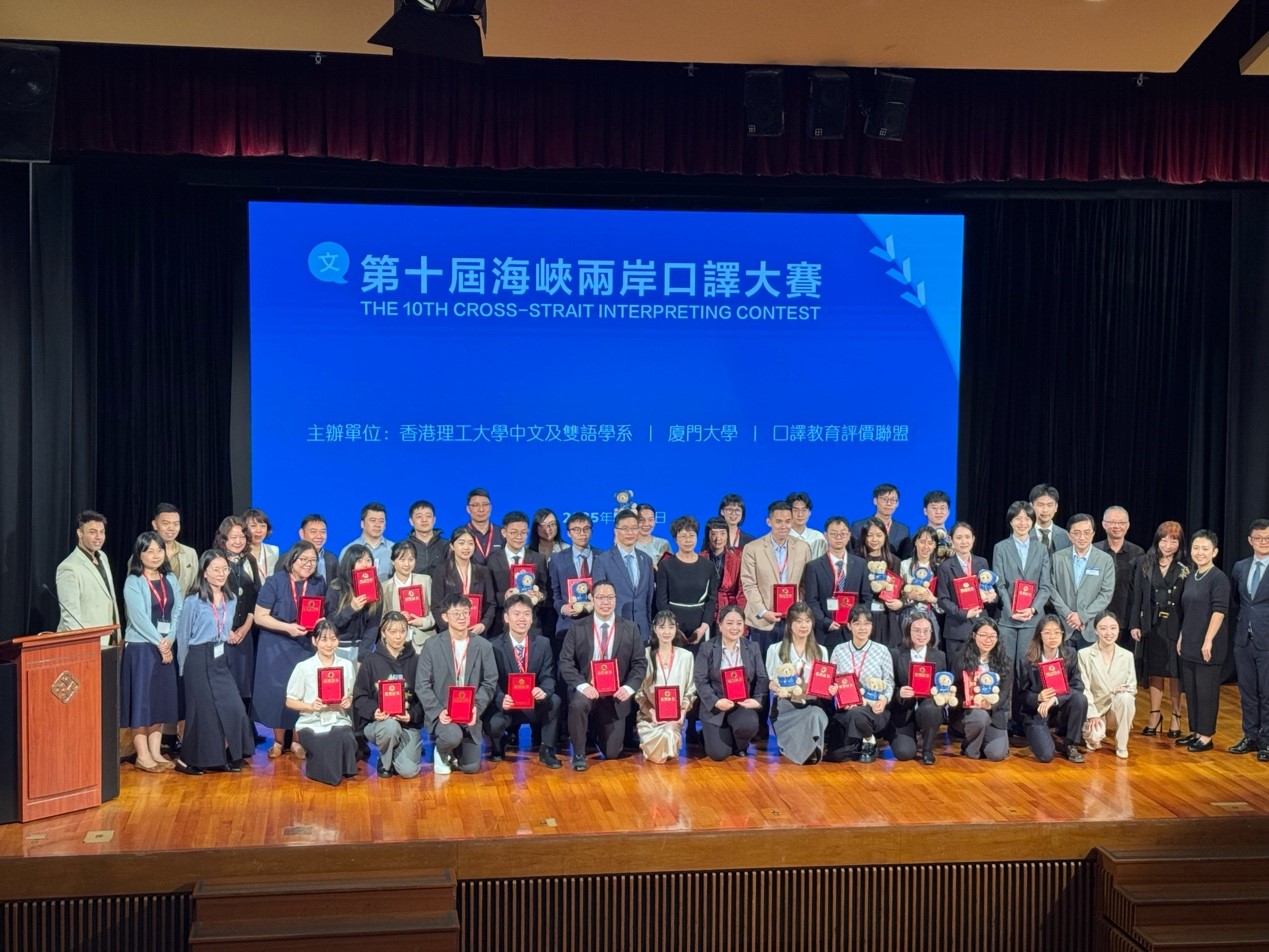
Interpretation experts on Saturday urged future interpreters to contemplate how to better utilize artificial intelligence technologies to deliver interpretations that are not only more comprehensible, but can also retain a human touch in cross-cultural communication.
They made the call during the grand finale of the 10th Cross-Strait Interpreting Contest held at the Hong Kong Polytechnic University (PolyU).
Thirty students from the Chinese mainland, Hong Kong and Macao special administrative regions, and Taiwan advanced to this year’s grand finale, with three rounds to test contestants’ skills in subject interpreting, conference interpreting, and dialogue interpreting.
READ MORE: PolyU harnesses AI, robotics to drive medical innovation in Hong Kong
Only those who had passed the previous assessment round can advance to the next round.
The subject of the conference and dialogue interpreting focused on the digital society. The dialogue session was designed on real-life scenarios involving slangs, verses and trendy expressions to elevate the complexity.
After three rounds of fierce competition, the biggest prize went to Hung Chien-hui, a student from Taiwan Normal University.
Addressing the finale’s opening ceremony, Chen Jing, dean of the College of Foreign Languages and Cultures at Xiamen University, said the biggest value of the contest, initiated in 2009, is providing a platform that brings together students passionate about learning interpretation, and helping them to become professionals and leaders in the field.
She noted that the rapid advancement of artificial intelligence technologies, coupled with the shift in societal needs, has altered the landscape of the vocational and educational ecosystems of interpretation.
ALSO READ: HK privacy watchdog releases generative AI use guidelines
This transformation has brought challenges and opportunities to the teaching and learning of interpretation, and pushed stakeholders to think about how to better utilize and manage AI technologies, Chen said.
Siok Wai-ting, head of PolyU’s Department of Chinese and Bilingual Studies, believed that this year’s event marks another milestone of advancing interpreting education and fostering collaboration across the mainland, Hong Kong, Macao and Taiwan.
She noted that as boundaries between various regions become increasingly fluid through growing trade, technology and tourism exchanges, the role of interpreters has never been more crucial.
Interpreters are more than language translators – they’re also cultural ambassadors who help shape meaningful connections among peoples and regions, Siok said.
Zhan Cheng, a professor of Sun Yat-sen University, said all the participants had shown their professional skills, saying having rich background knowledge in different disciplines can help interpreters complete the work better.
Chen Tze-wei, an associate professor at Taiwan Normal University, said every participant in the final has a high level of proficiency, and compared to AI, humans are believed to render translations with irreplaceable human touch and warmth.
READ MORE: PolyU launches innovative AI-powered legal service tools
Li Dechao, a professor of the Department of Chinese and Bilingual Studies at PolyU, noted that AI may deliver surface-level accuracy, and it’s hard to comprehend according to specific context.
Another highlight of the contest – a seminar focusing on discussing the future of the language services industry in the AI era – will be held at PolyU on Sunday, to be attended by scholars and professionals from related fields.
Founded in 2009, the contest has drawn top-tier students from the mainland, the two SARs and Taiwan majoring in translation.
This year’s contest was co-hosted by PolyU, Xiamen University, and The Network On Assessment And Evaluation In Interpreting.
This is the second time Hong Kong has hosted the final, following the seventh edition at the City University of Hong Kong in 2018.


